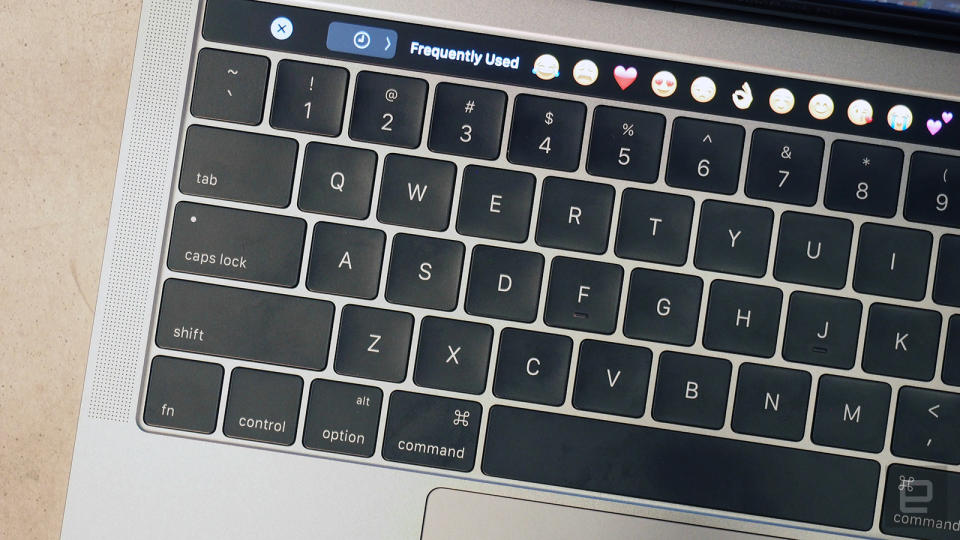Apple's 'polarizing' new products are paying off
Despite lots of hand-wringing about the iPhone 7 and MacBook Pro, Apple is doing just fine.

Throughout much of 2016, it seemed like lots of Apple fans were unhappy. The year brought few updates to the Mac (and the one big change was quite polarizing), a barely redesigned iPhone with no headphone jack, AirPods that shipped two months late and a new Apple Watch that was a modest improvement to a product still seen as nonessential.
But it's time to accept that the complainers on the internet (including those of us in the media) might not have our fingers on the pulse of Apple fandom. Case in point: Apple just reported a massively successful quarter. According to CEO Tim Cook, both iPhone and Apple Watch sales hit records for both unit sales and revenue. In the case of the iPhone, that reversed three consecutive quarters of declining sales. The iPhone turnaround had to be a huge relief for Apple: The product is the company's biggest revenue source by far.
Mac sales also generated record revenue, despite the fact that the new MacBook Pro was limited in supply and the rest of Apple's computer lineup hasn't been updated in a long time. Meanwhile, Apple's services business (iCloud, Apple Music, Apple Pay and so on) increased 18 percent over last year. Tim Cook has been talking up the company's services for a year now and says the goal is to double its size over the next four years. The one weak spot in Apple's quarter was the iPad, which is facing three years of declining sales and had the second-worst holiday quarter in its history. (The worst holiday quarter for the iPad was in 2010, when the original iPad was less than a year old and just carving out a place in the market.)

The iPad's ongoing struggles aside, this quarter suggests Apple might actually be giving customers what they want. Or, more cynically, customers who've become locked into the Apple ecosystem decided that now was the best time to upgrade, not jump ship to another platform. The truth is likely somewhere in the middle. While power users might miss the MacBook Pro's full-size USB ports and longer battery life and those with great headphones might be annoyed at having to use a dongle with the iPhone 7, it seems the majority of "normal" consumers out there are not rejecting Apple's new products en masse because of these changes.
The iPhone's strength was particularly surprising when you consider how many viewed the iPhone 7 as an iterative update. It has essentially the same design as the iPhone 6 and 6S, and many believe that Apple is saving a radically redesigned smartphone for later this year, the iPhone's 10th anniversary. But dismissing the iPhone 7 because of its looks does the phone a disservice. The dual camera and portrait photo mode in the 7 Plus are huge steps forward in mobile photography, and they appear to resonate with customers. Tim Cook specifically called out unexpectedly high demand for Apple's larger phone in this week's earnings call.
Waterproofing and the expected battery and performance improvements make for less-dramatic but nonetheless welcome updates. And when you figure it's been two years since Apple's positively massive quarter that accompanied the iPhone 6 launch, it stands to reason plenty of people were in the market for a new phone.

It's a little harder to explain the Mac's successful quarter. But the simple answer is that the Mac is fitting customers' needs, despite the relative lack of updates over the past 18 months. Indeed, last year's tech is more than enough for the average consumer at this point. Pros might bristle about not having the latest Intel processor, but for those who aren't rendering video or dealing with massive Photoshop files, the Macs out there are more than capable. That plus a bump from the new MacBook Pro was enough to put the Mac back in the black.
A year of iterative updates that were nonetheless successful with consumers last quarter speaks to an industry-wide trend of modest improvement in both PCs and smartphones. These product categories are extremely polished at this point, and there are simply not going to be sweeping, massive changes every year anymore. That might be a bummer for those of us who breathlessly await new products from the tech industry's biggest companies. But you can currently buy a Mac or iPhone and rest assured that it'll last you years, even if it doesn't have a shiny new form factor or the latest Intel processors in it. For the average consumer who just wants to buy something that works well with minimal fuss, that maturity is a good thing.
